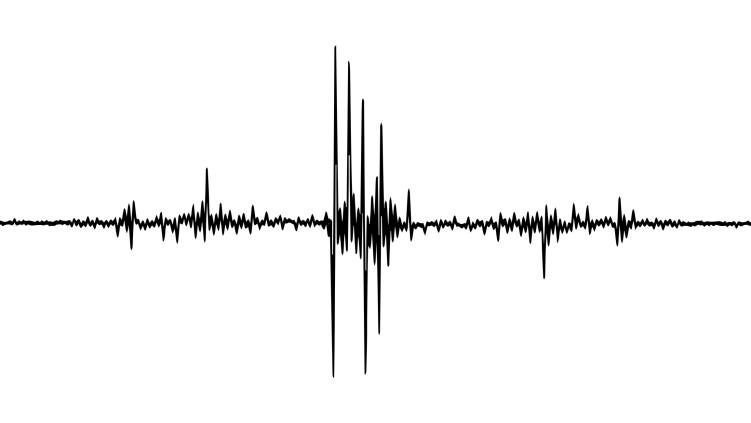“Tesla and SpaceX factories have a great vibe,” tweeted Elon Musk, Detroit’s autoworkers and owners on a collision course. “We encourage playing music and having some fun. Very important for people to look forward to coming to work!” continued the world’s richest man, his $271bln net worth nearly twice the combined market capitalization of General Motors ($47bln), Ford ($50bln), and Stellantis ($61bln). “We pay more than the UAW btw, but performance expectations are also higher,” he tweeted, taunting the UAW labor union chief. “Quite a few of our factory techs who work on the line have become millionaires over the years from company stock grants.”
Overall: “The money is there. The cause is righteous. The world is watching, and the UAW is ready to stand up,” declared United Auto Workers boss Shawn Fain to his union members on a Facebook livestream. “This is our defining moment.” Detroit automaker unionized labor costs, including wages and benefits, are estimated at an average of $66/hour. That compares with $45 at Tesla, which isn’t unionized, and $55 for Asian automakers. Meeting all of Fain’s initial demands would boost average hourly labor costs to an estimated $136/hour. Fein claims to be matching the roughly 40% compensation gains automaker CEOs have realized in the past decade. Ford’s CEO made $22mm last year. Stellantis’s $24.8mm. GM’s nearly $29mm. “Competition is code word for race to the bottom, and I’m not concerned about Elon Musk building more rocket ships so he can fly in outer space and stuff,” Fain told CNBC, defending his demands. “Our concern is working-class people need their share of economic justice in this world.” The secular trend toward ever rising inequality is turning. In August, UPS settled its labor dispute with the Teamsters 340k drivers who on average now make $170k in wages and benefits. That same month, Yellow failed to come to agreement with the Teamsters and ceased operations after nearly a century of trucking delivery -- it awarded ten executives $4.6mm in special retention bonuses, laid off all 30k drivers and went into liquidation. A secular trend reversal to how society divides its economic spoils is not all that different from revolution. Bitterly fought, treacherous for all involved. And this latest episode promises to be particularly so. Because in the timeless conflict between capital and labor, it is extremely rare for the imbalance to be so extreme. The wider the gap, the bigger the stakes. And the last time the chasm was so great was at the height of the Roaring 1920s.
Week-in-Review: Mon: BOJ gov Ueda suggests exiting NIRP at year end is possible if wages and price pressures increase, PBOC set stronger than expected CNY fix by record margin followed by statement that action will be taken to correct ‘one-sided moves’ / PBOC to approve any trades from companies that need to purchase $50m USD or more, TSLA rises on announcement of its AI Dojo supercomputer, Yellen is increasingly confident that US will be able to contain inflation w/out sig job losses, BoE’s Mann (hawk) calls for more tightening, China aggregate financing 3.12T (2.69T exp), Italy IP -2.1% (-1.8%e), S. Africa mfg prod 2.3% (4.8%e), Mexico IP 4.8% (4.0%e), US NY Fed 1y infl exp 3.63% (3.55%p), S&P +0.7%; Tue: OPEC report shows tightest market in a decade, ECB reportedly set to keep inflation forecast above 3% - bolstering case for a hike, BOE’s Breeden warns of impending stagnation, Google monopoly trial begins, California requires companies with over $1b in rev to disclose direct and indirect greenhouse gas emissions, BoK Minutes suggest low chance of sustained inflation pickup, UAW lowers pay increase demand to 36% (from 40%) but still far apart from automakers, UK unemp 4.3% as exp / 3m/3m emp chg -207k (-195k exp), Germany ZEW exp -11.4 (-15e), Brazil IPCA infl 4.61% (4.66%e), India IP 5.7% (5.3%e), India CPI 6.83% (7.10%e), S&P -0.6%; Wed: US CPI 3.7% (3.6%e) / Core CPI 4.3% as exp, Polish PM aide verbally intervenes against Zloty weakness, IEA warns of significant oil supply shortfall due to Saudi and Russia production cuts, Kishida revamps cabinet but keeps core economic policy makers in existing positions, Putin/ Kin Jong Un meet for first time in 4y, S. Korea unemp 2.4% (2.9%e), Japan PPI 3.2% (3.3%e), UK IP 0.4% as exp, UK mfg prod 3.0% (2.7%e), EU IP -2.2% (-0.3%e), S&P +0.1%; Thu: Australia Employment Change 64.9k (25.0k e), ECB hike rates 25bps to 4% citing concerns about inflation, PBOC lowers reserve requirement by 25 bps, US Jobless Claims 220k (225k e), US PPI 1.6% (1.3%e), US Adv Retail Sales +0.6% (0.1%e), S&P +0.8%; Fri: China IP 4.5% (3.9%e), China Retail Sales 4.6% (3.0%e), US Import Prices -3.0% (-2.9%e), US Empire mfg 1.9 (-10.0e), US U. of Mich. Sentiment 67.7 (69.0e), UAW launches strike against big three auto companies, scientists discover new type of brain cell, S&P -0.1%
Weekly Close: S&P 500 -0.2% and VIX -0.05 at +13.79. Nikkei +2.8%, Shanghai flat, Euro Stoxx +1.6%, Bovespa +3.0%, MSCI World +0.4%, and MSCI Emerging +1.1%. USD rose +0.8% vs Ethereum, +0.7% vs Sterling, +0.6% vs Sweden, +0.6% vs Turkey, +0.4% vs Euro, +0.3% vs India, +0.2% vs Indonesia, and flat vs Yen. USD fell -2.9% vs Mexico, -2.4% vs Brazil, -1.6% vs Bitcoin, -1.3% vs Chile, -1.3% vs Russia, -0.9% vs China, -0.9% vs Australia, -0.8% vs Canada, and -0.6% vs South Africa. Gold +0.2%, Silver +0.9%, Oil +3.7%, Copper +2.3%, Iron Ore +3.4%, Corn -1.6%. 10yr Inflation Breakevens (EU +2bps at 2.44%, US +1bp at 2.35%, JP +4bps at 1.15%, and UK +4bps at 3.86%). 2yr Notes +4bps at 5.04% and 10yr Notes +7bps at 4.33%.
Year-to-Date Equities (high to low): Argentina +42.1% priced in US dollars (+180.8% priced in pesos), Hungary +37.3% priced in US dollars (+32.5% in forint), Greece +34.9% in dollars (+35.4% in euros), NASDAQ +31% in dollars, Ireland +22% (+22.4%), Italy +21.4% (+21.9%), Mexico +21% (+6%), Denmark +18.6% (+19.4%), Poland +17.8% (+17.2%), Brazil +17.5% (+8.2%), S&P 500 +15.9% in dollars, Spain +15.6% (+16%), Taiwan +15.3% (+19.7%), Japan +13.9% (+28.5%), MSCI World +13.8% in dollars, Germany +13.7% (+14.1%), France +13.6% (+14%), Euro Stoxx 50 +12.8% (+13.2%), India +11% (+11.5%), Russia +10.8% (+46.3%), Korea +10.6% (+16.3%), Czech Republic +10.5% (+12.7%), Chile +9.5% (+14.1%), Switzerland +7.3% (+4.4%), Netherlands +7.2% (+7.6%), Saudi Arabia +6.7% (+6.5%), Canada +6.5% (+6.4%), UK +6.1% (+3.5%), Colombia +5.4% (-14.6%), Russell +4.9%, Indonesia +2.9% (+1.9%), Austria +1.4% (+1.8%), Norway +1.3% (+11.1%), Portugal +1.3% (+1.6%), Turkey +0.2% (+44.5%), Sweden +0.2% (+7.4%), Belgium -0.1% (+0.3%), Singapore -0.9% (+0.9%), Australia -2.4% (+3.4%), UAE -3.2% (-3.2%), China -4.3% (+0.9%), Israel -5.3% (+2.9%), Venezuela -6.4% (+84.5%), South Africa -7.6% (+3.1%), New Zealand -8.1% (-1.1%), Malaysia -8.2% (-2.4%), HK -8.4% (-8.1%), Philippines -8.5% (-6.7%), Finland -8.8% (-8.5%), and Thailand -10.3% (-7.6%).
Fog: “This is the first time that mankind will have experienced something smarter than itself,” said Masayoshi Son, the planet’s 65th wealthiest person. “Mankind was the smartest animal on the earth. AI is going to surpass big time. The AGI stage is coming very soon, and once it comes it will go so far,” said Masa, happy to see his company, ARM, trading higher after its IPO to a $62bln market cap. “We all must ask ourselves, what is mankind, what is work, what is life? What is intelligence? It is a new experience; it is a new society that we are going to face.”
Fog II: “In the past few years we focused on being defensive. Now we’re ready to shift into offensive mode,” continued Masayoshi Son. “I’m very excited about that.” After years of losses, he has quietly amassed 5trln Yen in cash ($34bln). Masa has 500 portfolio companies and sees most as having great applications for artificial intelligence. “AI is going to help solve all sorts of things that we couldn’t solve in the past. Diseases. Auto accidents, natural disasters. All kinds of other issues that humankind has had in the past.” Let’s hope so. We have an abundance of issues.
Fog III: The 10 largest companies in the S&P 500 now make up 34% of the index with an avg P/E ratio of 50x. It is the highest percentage since the 2001 bubble. Even at the 2008 highs, this percentage peaked at ~26%. These same 10 companies have accounted for ~80% of the Nasdaq's entire rally this year. Markets are increasingly held up by a few stocks, particularly in the tech sector. Such companies have a unique ability to integrate AI into their models, leveraging the new tech to drive profits. So far, the economics of AI has accrued entirely to capital owners.
Fog IV: The gov’t budget deficit is running at ~8% of GDP, more than 2x the long-term average, not far from the 2008 crisis extreme. $12trln in fiscal and monetary stimulus over the past few years has supported a 40% rise in nominal GDP. The headline numbers are breathtaking, even if the real numbers are not. And with such massive sums, it is natural to wonder how society will choose to distribute it. Inflation helps, and that is by design. Inflation is the fog of war, obscuring the true distribution of spoils in the bitter battles between capital and labor, debtors and creditors.
Fog V: Imagine (as I do) that AI is more economic blessing than existential curse. And that this will accelerate humanity’s arrival at a state of abundance. The fight between capital and labor over those economic spoils as they accrue will be bitter of course. But with rapidly expanding wealth, compromises can be found. The great risk, of course, is that such a state of advancement and abundance remains a distant dream. This would leave the US with a suffocating debt level amidst a shortage of real economic growth with the possibility of sticky inflation. And such a toxic combination would render our policymakers largely incapable of reigniting growth without permitting a great liquidation.
Anecdote: “I love to walk new board members through our history,” said the CIO, the two of us discussing unique challenges facing endowed institutions in the decade ahead. “Between 1965 and 1975 the endowment lost approximately 85% of its real purchasing power,” he said. “A decade or more of outstanding investment returns had left the endowment flush in the mid-1960s, and the leaders had expanded its forward commitments to its various causes.” Then came the dramatic losses on its equity and bond portfolios. Its largest single equity holding was an industrial stock that for decades appeared unassailable. It too was severely punished through the 1970’s stagflation. “The institution was ultimately forced to fire 50% of staff. At the lows, the decision was also nearly taken to liquidate its equities, after a terrible decade for stocks. But one senior leader intervened, recognizing that the endowment would have no chance to recover from such a decision.” The endowment eventually recovered and continues to be one of America’s largest, funding countless worthy causes. “People fail to appreciate that the long-term fate of institutions is largely determined by who sits in key leadership seats when the crisis arrives. That applies to any institution, nations as well. All the great governance rules in the world will not save you without the right leaders in place,” he said. “I think hard about ensuring we survive the real risks, existential risks,” he said. “The Fed’s stress tests are presumably built to do the same, but they don’t even properly account for interest rate spikes and inflation,” he said, rolling his eyes. “We prefer to run a different kind of stress test, a reverse stress test, if you will: assume your institution fails in the future, and then define the various paths that could potentially produce that outcome.” he said. “A repeat of the 2008 crisis followed by 4-5 years of a sideways stock market would destroy many endowments.” Quite a few state pensions too. “And most people think that’s why the Fed would intervene and prevent that outcome. But what if because of debt, inflation and/or some other factors, the Fed is no longer able to have the same impact on markets as it has had in recent decades?”
Good luck out there,
Eric Peters
Chief Investment Officer
One River Asset Management
Disclaimer: All characters and events contained herein are entirely fictional. Even those things that appear based on real people and actual events are products of the author’s imagination. Any similarity is merely coincidental. The numbers are unreliable. The statistics too. Consequently, this message does not contain any investment recommendation, advice, or solicitation of any sort for any product, fund or service. The views expressed are strictly those of the author, even if often times they are not actually views held by the author, or directly contradict those views genuinely held by the author. And the views may certainly differ from those of any firm or person that the author may advise, converse with, or otherwise be associated with. Lastly, any inappropriate language, innuendo or dark humor contained herein is not specifically intended to offend the reader. And besides, nothing could possibly be more offensive than the real-life actions of the inept policy makers, corrupt elected leaders and short, paranoid dictators who infest our little planet. Yet we suffer their indignities every day. Oh yeah, past performance is not indicative of future returns.





